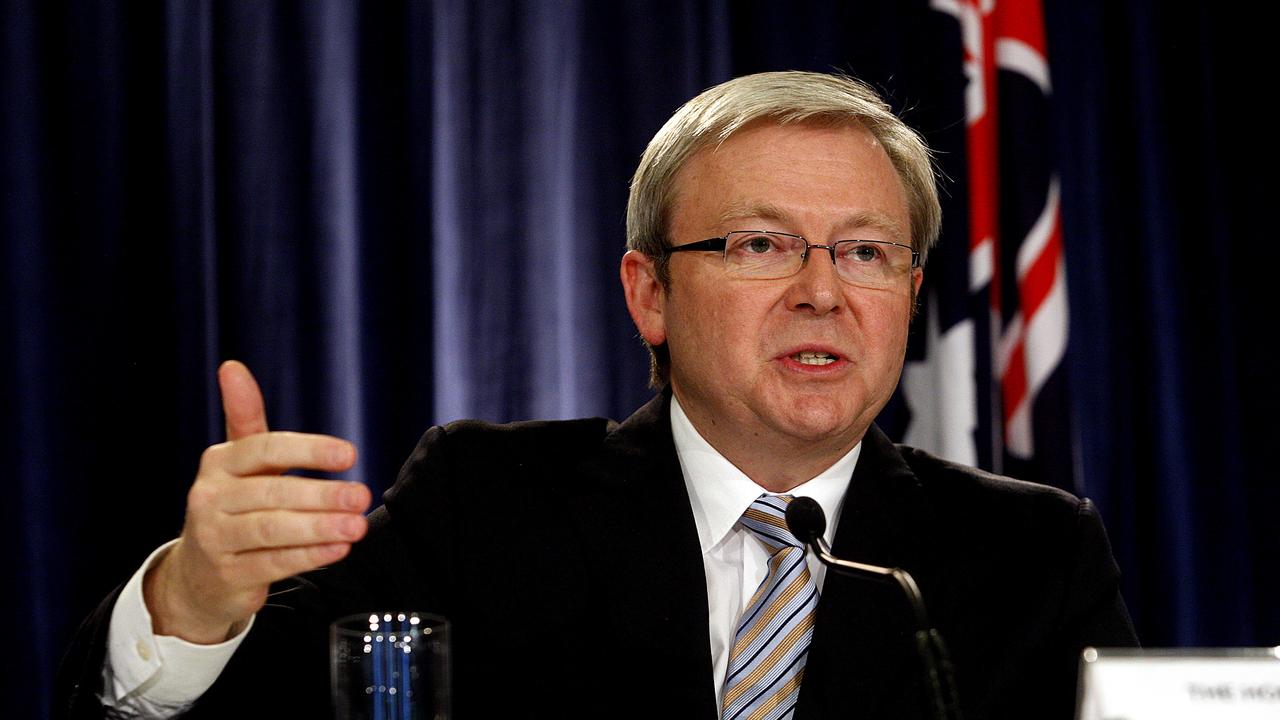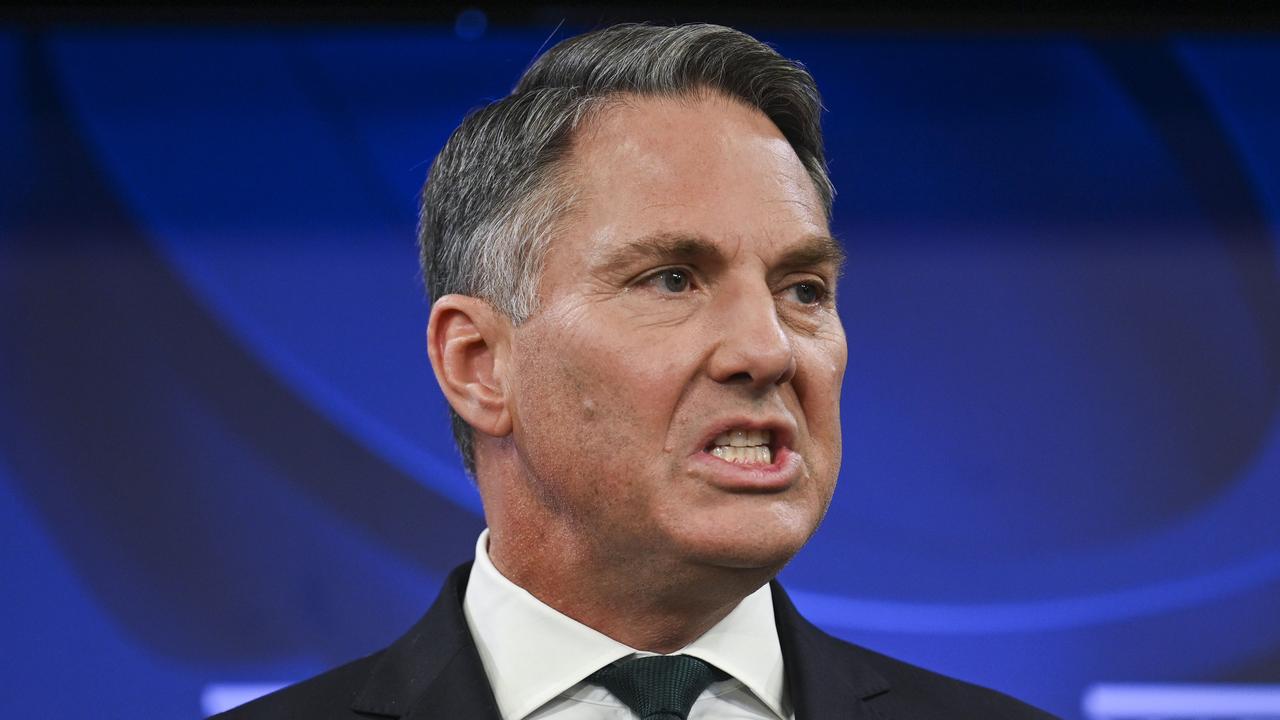Peta Credlin: How Albo’s importing problems to our homes
If you have the sense that Australia is changing, almost before our very eyes, it’s not hard to know why, writes Peta Credlin.

If you have the sense that Australia is changing, almost before our very eyes, it’s not hard to know why.
After immigration hit an all-time record of 765,900 last year, total immigrant numbers have just hit another all-time record of 100,000 new arrivals in just the month of February alone.
If you think this feels significant, it is. In the Howard era, we averaged 110,000 a year.
When Kevin Rudd was pilloried for his ‘Big Australia’ push, the numbers were around 220,000 a year.
It’s no secret then, why housing is unaffordable, wages are flat, and roads and public transport are clogged because that’s just what happens when you don’t have a population policy and instead, use migration as a way to make the budget bottom line look better than it really is.

Indeed, this massive spike in migration is why Australia is now in a per capita recession which explains why, at a household level, so many of us feel we’re going backwards.
The Albanese government says that it wants to get net migration down to about 300,000 a year but even at this reduced rate, it’s still almost three times the average annual intake during the Howard years.
The government also says that it wants to build the nearly 250,000 new homes a year needed to house this vast influx, but scarcely half that number are actually being built. Indeed, the most recent data says housing approvals are running at an 11-year low.
But quite apart from the economic pressure that it puts on the Australians who are already here, the other key aspect of immigration at these levels is the strain it puts on social cohesion.
This is hardly the fault of the immigrants themselves who invariably have chosen to come to Australia because they appreciate our country’s strengths. But it is the fault of successive governments that have failed to insist on migrants joining Team Australia.

Not only have successive governments, really from Gough Whitlam’s time, told migrants to keep their culture (even if it’s at odds with Australia’s), they’ve increasingly sent signals to migrants that the culture of the country they’re coming to is built on a history of shame, illegitimacy, and racism.
There are now over five million Australians who speak a language other than our national one at home, principally Mandarin or Arabic.
Is it any wonder that some migrant communities become reluctant to integrate or insistent that Australia must change to accommodate their preferences, when weak officialdom will only fly our national flag apologetically, in company with two other flags representing people with a particular racial heritage? Or when our civic culture now seems to revolve around indigenous ancestor worship while denigrating the Judaeo-Christian basis of our fundamental institutions like the rule of law.
There’s a lot of left-wing politics mixed into the anti-Semitic, pro-Hamas, “river to the sea” marches that now seem to disrupt our biggest cities almost every week. And there was doubtlessly a lot of pent-up resentment at official pandering to every faith except Christianity in the melee that erupted after an Assyrian bishop was stabbed in his church by an alleged Islamist terrorist.

But a lot of it is also recent immigrants finding it hard to leave old prejudices behind; and certainly not taking on board the live-and-let-live ethos that used to characterise this country.
It’s a far cry from the much better managed (and almost as big on a per capita basis) immigration programs of the 1950s and 60s where newcomers were directed to specific projects, such as the Snowy Mountains Scheme, and were expected to become Australian as quickly as they could, including acceptance of the Judaeo-Christian ethic on which the country has been built.
Today’s vacuous “our diversity is our strength” alternative is bound to create a nation of tribes which is no nation at all.
Last week, the e-safety commissioner ordered big tech to take down footage of the bishop’s stabbing. But what about eliminating all the hate-filled Islamist bile from preachers in Sydney and Melbourne that’s preceded it?
Maybe it’s the 13 Labor seats with 10 per cent or more Muslim voters, some with numbers as high as 35 per cent, that explains the Albanese government’s hesitation.
It would be a shameful sell-out to put ethnic politics ahead of our national interests and our national values.
It’s way past time for governments at every level to start stressing unity over diversity, to rebuild a patriotic love of Australia, rather than to preside over the diminution of our national symbols, like Australia Day.
Mark my words, Anzac Day is next.
Be afraid, be very afraid ... we can’t defend ourselves like Israel
Iran’s missile attack on Israel, and Israel’s counterstrike, have big lessons for Australia.
Should a hostile power launch a missile attack on us, we have no Iron Dome equivalent to ward it off.
And should we wish to retaliate, we have no missile force or even armed drones to do the job.
Compared with Israel, we can neither mount a defence nor launch an attack.
You might think this would be high on the Albanese government’s priorities to rectify but you would be wrong. Last week’s big announcement from Minister for Defence Richard Marles was nothing but smoke and mirrors at a time when our global security environment has never been more precarious.

The headlines might have screamed a new commitment of $50bn for drones and missiles but only $6bn of this is in the actual budget.
And despite Australian companies making state-of-the-art drones and shipping them to Ukraine, we still don’t have that capability in our own nation’s arsenal.
As Marles outlined, eventually there will be more ships, more submarines and more personnel but what he didn’t tell Australians was there will be almost nothing in the next 10 years, when conflict could readily break out.
Indeed, in the next few years, our armed forces will actually become even weaker.
One of the existing Anzac frigates has already been prematurely retired, with two more likely to follow.
The fourth squadron of F35 fast jets that we had been going to order, and that could get quickly into service, has been cancelled.
There will be no Tomahawk missiles for our existing submarines. And in typical defence department style, there will be no swift decision on the light frigates we hope to get quickly from overseas.
The problem is that Labor doesn’t believe in military defence.
They see the ADF as little more than a disaster relief agency, sent in to mop up after a flood or cyclone.
The Liberal’s shadow defence minister, Andrew Hastie, is far more realistic about the grim state of the world. The former SAS officer says the core business of the military is “the application of lethal violence” to defend Australia’s values and sovereignty. Having put his life on the line in Afghanistan, there’s just no way Hastie would be leaving us as poorly equipped and funded as we are now.
More Coverage
Originally published as Peta Credlin: How Albo’s importing problems to our homes





